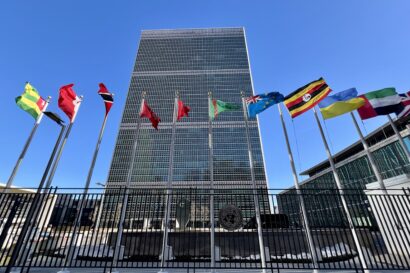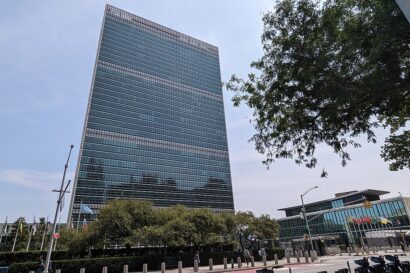On June 30th to July 1st, the 139 countries that are members of the Inclusive Framework on BEPS will meet online to discuss the “two pillar approach” they have been developing to reform the taxation of multinational business. The recent G7 agreement on reallocating some taxing rights for the “largest and most profitable” multinational companies to market countries (Pillar One) and a global minimum tax rate of “at least 15%” (Pillar Two) has raised important questions.
Does what the G7 has agreed go far enough to meaningfully achieve the goal of preventing multinationals from shifting profits to avoid paying taxes where they operate? How will important G20 countries like China, India, and Brazil respond, given their previous efforts to push for simplified methods and lower thresholds? In addition, about 70% of the Inclusive Framework’s members are now non-OECD and non-G20 countries. Will the agreement benefit lower-income countries, who suffer disproportionately from tax avoidance?
We asked members of our network working on international taxation to share their views, and received the following contributions:
Mary Baine
Director of Tax Programmes, African Tax Administration Forum (ATAF)
ATAF considers reaching a global consensus on the tax challenges arising from the digitalisation of the economy to be of paramount importance. Now more than ever, cooperation in developing solutions that will assist all countries in rebuilding their economies in a post-Covid-19 environment is critical. However, we are concerned by the complexity of the Pillar One Blueprint proposals which appear to result in very little reallocation of taxing rights to market jurisdictions.
ATAF has proposed a number of simplification measures in this regard. We are also calling for a lower nexus revenue threshold for smaller economies, to meet the objective of the policy rationale for the rule, that is, to capture large multinational enterprises (MNEs) that participate in a sustained and significant manner in the economic life of market jurisdictions without necessarily having a commensurate level of taxable presence in that market (based on existing tax rules). Regarding the reallocation of MNE’s global profits to market jurisdictions, ATAF proposes to reallocate a portion of the MNEs routine profit in addition to a portion of the residual profit to these jurisdictions to ensure a more equitable allocation of taxing rights.
Further, our concerns remain about the resource and cost implications of having a mandatory binding dispute prevention and resolution mechanism imposed upon our members, and propose that countries with low MAP inventories apply an elective binding dispute resolution mechanism whereby failed MAP cases relating to Amount A would be resolved through a binding resolution process only where both countries’ Competent Authorities elect for the case to go through such a process.
In respect to Pillar Two, ATAF and the African Union continue to call for the global minimum effective tax rate to be at least 20%. We have noted the G7 agreeing to a rate of at least 15% and we wish to see this result in a rate of at least 20%. In addition, we have stated that a source-based rule such as the Undertaxed Payments Rule (UTPR) or Subject to Tax Rule (STTR) should be the primary rule under Pillar Two to assist in redressing the current imbalance in the allocation of taxing rights between residence and source jurisdictions. We also continue to call for the STTR to be broad in scope and to cover payments of interest, royalties, all service payments and capital gains.
Carlos Protto
Director of International Tax Relations, Ministry of Treasury, Argentina
Developing countries need to make their own assessments about what will work for them and what will not, and express their views and preferences. I represent Argentina at the Inclusive Framework, and I have raised many concerns throughout the process, which the OECD’s Secretariat and other members have tried to accommodate. Of course, different levels of capacity among countries shapes their ability to have an impact on the negotiations. But if countries do not speak up, it is very difficult for the Secretariat and other member countries to try to come up with solutions that take into account their views.
Therefore, I strongly encourage all developing countries to make a serious assessment of the proposed measures and communicate their concerns and challenges, as well as proposing alternatives. Of course, not all jurisdictions will gain equally, but in order to reach a productive consensus, both clarity and compromise will be needed to make the global outcome a solution that is also good for developing countries.
In my opinion, developing countries with small markets (that are not low-tax jurisdictions), should favour different parameters than those agreed by the G7. Regarding Pillar One, they would benefit more from a broader scope for Amount A, in order to target more than just the 100 largest and most profitable MNEs. In terms of tax base determination, they should seek at least 30% of non-routine profits be reallocated, as the 20% proposed by the G7 is unlikely to be sufficient.
As for the requirement to remove unilateral measures, it is important to recognise that it is unbalanced to ask countries to give up domestic tax rules that apply to all taxpayers in order to implement a new mechanism that may only cover 100 MNEs. Further, it is not clear whether the commitment will only apply to digital service taxes (DSTs) or also to other taxes levied on non-residents deriving income from source states without a physical presence (for example, income covered by Articles 12 and 12A of the UN Model Tax convention).
Finally, many developing countries have expressed concerns with the mandatory and binding dispute resolution mechanism proposed for issues arising around Amount A. For Pillar Two, developing countries should push for a higher minimum tax rate than the 15% agreed by the G7, as according to estimates, the design of the rules for implementation will not result in much revenue for developing countries.
Suranjali Tandon
Assistant Professor, National Institute of Public Finance and Policy
The G-7 agreement is being hailed as a ‘seismic’ shift in taxation of corporations. On the contrary, to a keen reader of international tax, it has let down the hopes that the BEPS program brought through the minimum standards and the notion that each country participated on equal footing. The devil really is in the details, and the impact each of the proposed changes might have on any country’s tax collection depends on a myriad of issues that need to be agreed on before it can be called a global pact.
For example, the Pillar One report makes 73 references to issues that need further work. There are two key issues that need to be resolved before the deal is sealed; who gets the right to tax, and what will remain as tax incentives countries can offer as their sovereign right. By its design, Pillar Two does not require all to agree, since no treaty changes are required to bolster the residence country’s right to shore up unpaid taxes in reference to the minimum. Furthermore, its interaction with US’ GILTI is not yet clear. As a result, tax incentives offered by developing countries may result in taxes being paid in developed countries. Some countries (not necessarily tax havens), lower rates to attract foreign investment in order to manage their balance of payments. Therefore, if a global minimum tax is to be finalised, the macroeconomic consequences of such a change must be understood.
As for Pillar One, the redrawing of the list of which companies will be covered has only added confusion to the ultimate impact, but if Yellen is correct, it will be revenue neutral for the US, which means investment hubs and others will pay. But how much will markets such as India, which have laboured through the Inclusive Framework discussion, receive? It may be marginal with the exclusion of routine profits and process of allocation. Pillar One could benefit from simplification and fewer exclusions. However, another issue remains which is the use of binding dispute resolution not agreeable to all countries.
This is a chance to reform a tax system that has evolved over a hundred years. Rushing through it, and replicating the imperial bias of the 1920s would be unfair. The proliferation digital levies points to the fact that perhaps a withholding tax may better suited to address the tax challenges arising from digitalisation. The Inclusive Framework must therefore not rush to seal a deal that doesn’t serve the interests of developing countries, which now make up the majority of its membership.
Mustapha Ndajiwo
Executive Director, African Centre for Tax and Governance
The G7 proposal on a global minimum tax rate is a significant step towards addressing the race to the bottom and other harmful tax practices. If implemented as proposed, it has the potential to increase revenues for African countries. However, it is important to note that the process leading to the proposal is not inclusive and the 15 percent rate proposed will have little effect on many developed countries such as Ireland and Switzerland where corporate tax rates are already in the region of 15%. Recent estimations show that the ideal rate should be 25%. Furthermore, considering the implications of the adoption of a global minimum tax rate, African countries need to hurriedly rethink their tax incentives framework to avoid losing revenues to other jurisdictions.
Yue Daisy Dai
Assistant professor of law at the Shanghai University of Finance and Economics and Visiting Professor of law at Peking University School of Transnational Law
Chinese companies are unlikely to be particularly affected by the plan to set a global minimum tax rate of 15%, as agreed by the G7. China’s normal corporate tax rate is 25%, which falls to 15 per cent for high tech companies. There are also several free trade port locations in China, which offer tax incentives including the lower 15% corporate tax rate and other tax exemptions. It is also possible for certain high tech firms to qualify for the lowest possible corporate tax rate of 12.5% under a tax break called the “2-plus-3”, which grants a two-year tax holiday from corporate tax followed by a 50% reduction in the statutory 25% rate.
However, if the overseas subsidiaries of Chinese headquartered companies fail to pay tax at these rates, China has an anti-tax avoidance rule that kicks in. China is quite active in enforcing this rule, so it hasn’t had as significant a problem as European countries in terms of losing its tax base to corporate tax avoidance.
Frederik Heitmüller
PhD Candidate, Institute for Tax Law and Economics at Leiden University
Whether global minimum taxes imposed by countries in which multinational enterprises are headquartered favour developing countries or not remains controversial. Some see them as just another measure favouring rich developed countries, while others emphasise the increased fiscal space such taxes would afford to developing countries by putting a floor on tax competition. These diverging opinions are rooted in different assumptions about the role of the tax burden in investors’ decision-making processes, and about which countries actually compete with each other in a meaningful way. If one assumes that countries with different levels of economic development compete with each other, then global minimum taxes may divert capital from less to more developed countries by reducing the effectiveness of less developed countries’ tax incentives for attracting investment. However, if the level of tax only influences investors’ decisions to allocate capital among countries that are at similar levels of economic development, then a minimum tax may indeed enable developing countries to raise more tax revenue without having to worry about reduced levels of investment.
As I have elaborated in this GLOBTAXGOV piece, neither previous empirical studies nor the OECD’s impact assessment provide direct evidence regarding which assumption is more accurate. Since this is a crucial issue from the perspective of developing countries, more research should be carried out and more discussions should be had before declaring global minimum taxes as global tax policy standards.
Additional Views
Yesterday, the Independent Commission for the Reform of International Corporate Taxation (ICRICT) and G24 hosted an event titled “How to get a global tax deal that is fair to the world?” (recording here). At the event, Mathew Gbonjubola, the head of Nigeria’s delegation to the Inclusive Framework said:
“Before now, the discussion around the allocation of taxing rights has been very muted in most fora, but now it is being openly discussed, and that in itself is very historic. However, as to whether the inequality in the current allocation of taxing rights has been corrected, my view is that No, it has not, and the current proposals may not be able to address this.”
“In Africa we know the [corporate] tax rates average about 28%, so setting the rate this low [15%]…will not do much benefit to countries in Africa…it is likely to continue to promote base erosion from African countries.”
“Also, the way the rules are designed, the income inclusion rule appears to be the most favoured rule, such that taxes not paid in developing countries are going to be paid in developed countries, and this is opposed to the initial understanding and expectation that the countries where those revenues arose should have first choice.”
“Each jurisdiction will have to stand and speak for itself and understand how the proposals will affect its economic circumstances and its tax revenue. I know there are quite a number of countries that have raised their concerns against some of the elements but we are also aware that there are political pressures being mounted, there are diplomatic shuttles all over the globe going on as we speak to convince people to sign up. My admonition to developing countries would be to take a deep breath before saying Yes or No.”
Martín Guzmán, Argentina’s Minister of Economy said:
“We see problems with both Pillar One and Pillar Two. First, the 15% rate is way too low. There is a substantial risk that the minimum rate will in fact also be the maximum rate that becomes feasible. When it comes to the distribution of the benefits of taxation, we are facing a big risk that there will be an increase in inequality because of the way that the profits will be shared. We think there has to be a principle-based approach to Pillar One, and that’s not what we are seeing now. In our view, we should see a system closer to what ICRICT is proposing, basically apportioning profits according to a formula, based on a number of variables like sales, employment, and capital, and with a minimum tax rate that is certainly higher, we advocate not less than 21%, and 25% would be even better.”
🇦🇷Great to see @Martin_M_Guzman embracing @icrict call for global formulary apportionment and 25% global minimum tax to reform the way multinationals are taxed. Listen to Argentina’s position in the @OECDtax @g20org negotiations 🇦🇷 pic.twitter.com/LvuatQW4R9
— Icrict (@icrict) June 29, 2021


